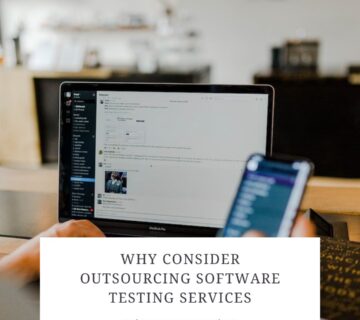Introduction
In the dynamic landscape of mobile app development, ensuring flawless performance across diverse devices and platforms is paramount. Mobile app testing emerges as the linchpin in this process, guaranteeing optimal user experience and app functionality. At Qacetech, we recognize the pivotal role of mobile app testing in delivering superior apps that captivate and retain users. To achieve excellence in this realm, we’ve curated the top 12 best practices for mobile app testing.
1. Comprehensive Test Planning
Mobile app testing begins with meticulous planning. Define clear objectives, identify target devices and platforms, and outline testing methodologies. A well-structured test plan lays the foundation for efficient testing cycles.
2. Device Diversity Consideration
The mobile ecosystem encompasses a myriad of devices with varying screen sizes, resolutions, and hardware specifications. Embrace device diversity by conducting compatibility testing across a spectrum of devices to ensure seamless performance for all users.
3. Prioritize User Experience (UX) Testing
User experience is non-negotiable in today’s competitive landscape. Prioritize UX testing to evaluate app usability, navigation flows, and overall user satisfaction. Emulate real-world scenarios to identify friction points and refine the app accordingly.
4. Automation Integration
Streamline mobile app testing processes by integrating automation frameworks. Leverage tools like Appium or XCTest for automated testing of repetitive tasks, regression testing, and ensuring app stability across iterations.
5. Performance Optimization
Efficient performance testing is indispensable for delivering a snappy and responsive app experience. Assess factors such as load times, resource utilization, and app responsiveness under various conditions to optimize performance.
6. Security and Privacy Validation
With growing concerns over data privacy and security, security testing assumes paramount importance. Conduct thorough security assessments to identify vulnerabilities, encrypt sensitive data, and fortify the app against potential cyber threats.
7. Network Conditions Simulation
Real-world network conditions can significantly impact app performance. Utilize tools like Charles Proxy or Network Link Conditioner to simulate diverse network environments, including 3G, 4G, or intermittent connectivity, and gauge app resilience.
8. Usability Testing Across Locale
Cater to a global audience by conducting usability testing across diverse locales. Assess app localization, language support, and cultural nuances to deliver a tailored user experience that resonates with international users.
9. Regression Testing Rigor
As apps evolve with frequent updates and feature enhancements, robust regression testing is imperative. Implement automated regression suites to validate existing functionalities and detect regression issues promptly.
10. Accessibility Compliance
Ensure inclusivity by adhering to accessibility standards such as WCAG (Web Content Accessibility Guidelines). Conduct accessibility testing to evaluate app accessibility for users with disabilities, including screen readers, voice commands, and color contrast.
11. Continuous Integration and Deployment (CI/CD)
Embrace CI/CD pipelines to facilitate seamless integration, testing, and deployment workflows. Automate build processes, run comprehensive test suites, and expedite app releases while maintaining code quality and stability.
12. Collaborative Testing Culture
Foster a culture of collaboration and feedback within your testing team. Encourage open communication, knowledge sharing, and continuous learning to drive innovation and elevate testing practices.
Conclusion
In the competitive realm of mobile app development, testing excellence is non-negotiable. By adhering to the top 12 best practices outlined above, Qacetech empowers developers and QA professionals to deliver exceptional apps that resonate with users worldwide. Elevate your mobile app testing endeavors and embark on a journey towards unparalleled success in the ever-evolving mobile landscape.






